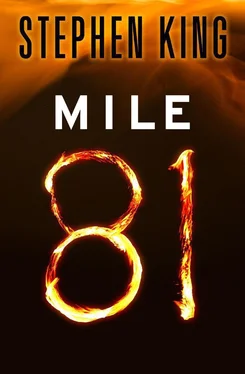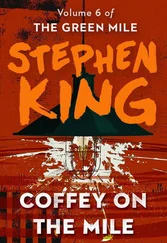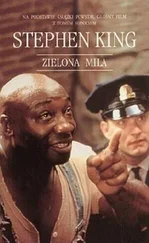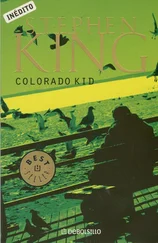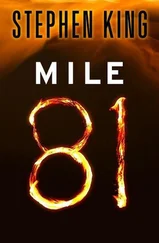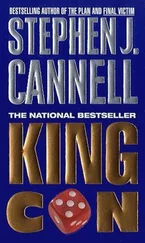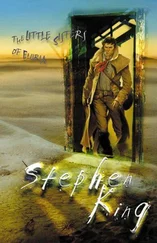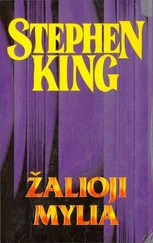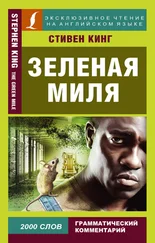1. PETE SIMMONS (’07 Huffy)
“You can’t come,” his older brother said.
George spoke in a low voice, even though the rest of his friends—a neighborhood group of twelve- and thirteen-year-olds who styled themselves the Rip-Ass Raiders—were up at the end of the block, waiting for him. Not very patiently. “It’s too dangerous.”
Pete said, “I’m not afraid.” He spoke stoutly enough, although he was afraid, a little. George and his friends were headed up to the sandpit behind the bowling alley. There they’d play a game Normie Therriault had invented. Normie was the leader of the Rip-Ass Raiders, and the game was called Paratroops From Hell. There was a rutted track leading up to the edge of the gravel pit, and the game was to ride your bike along it at full speed, yelling “ Raiders rule !” at the top of your lungs and bailing from the seat of your bike as you went over. The usual drop was ten feet or so, and the approved landing area was soft, but sooner or later someone would land on gravel instead of sand and probably break an arm or an ankle. Even Pete knew that (although he sort of understood why it added to the attraction). Then the parents would find out and that would be the end of Paratroops From Hell. For now, however, the game—played without helmets, of course—continued.
George knew better than to allow his brother to play, however; he was supposed to be taking care of Pete while their parents were at work. If Pete wrecked his Huffy at the gravel pit, George would likely be grounded for a week. If his little brother broke an arm, it would be for a month. And if—God forbid!—it was his neck, George guessed he might be whiling away the hours in his bedroom until he went to college.
Besides, he loved the little cock-knocker.
“Just hang out here,” George said. “We’ll be back in a couple of hours.”
“Hang out with who ?” Pete asked morosely. It was spring vacation, and all of his friends, the ones his mother would have called “age appropriate,” seemed to be somewhere else. A couple of them had gone to Disney World in Orlando, and when Pete thought of this, his heart filled with envy and jealousy—a vile brew, but strangely tasty.
“Just hang out,” George said. “Go to the store, or something.” He scrounged in his pocket and came out with two crumpled Washingtons. “Here’s a couple of bucks.”
Pete looked at them. “Jeez, I’ll buy a Corvette. Maybe two.”
“Hurry up, Simmons, or we’ll go withoutcha!” Normie yelled.
“Coming!” George shouted back. Then, low, to Pete: “Take the money and don’t be a boogersnot.”
Pete took the money. “I even brought my magnifying glass,” he said. “I was gonna show em—”
“They’ve all seen that baby trick a thousand times,” George said, but when he saw the corners of Pete’s mouth tuck down, he tried to soften the blow. “Besides, look at the sky, numbo. You can’t start fires with a magnifying glass on a cloudy day. Hang out. We’ll play computer Battleship or something when I come back.”
“Okay, chickshit, seeya later!” Normie yelled.
“I gotta go,” George said. “Do me a favor and don’t get in trouble. Stay in the neighborhood.”
“You’ll probably break your spine and be fuckin’ paralyzed for life,” Pete said . . . then hastily spat between his forked fingers to take the curse off. “ Good luck !” he shouted after his brother. “ Jump the farthest !”
George waved one hand in acknowledgment, but didn’t look back. He stood on the pedals of his own bike, a big old Schwinn that Pete admired but couldn’t ride (he’d tried once and wiped out halfway down the driveway). Pete watched him put on speed as he raced up this block of suburban houses in Auburn, catching up with his homies.
Then Pete was alone.
He took his magnifying glass out of his saddlebag and held it over his forearm, but there was no spot of light and no heat. He looked glumly up at the low-hanging clouds and put the glass back. It was a good one, a Richforth. He’d gotten it last Christmas, to help with his ant-farm science project.
“It’ll wind up in the garage, gathering dust,” his father had said, but although the ant-farm project had concluded in February (Pete and his partner, Tammy Witham, had gotten an A), Pete hadn’t tired of the magnifying glass yet. He particularly enjoyed charring holes in pieces of paper in the backyard.
But not today. Today, the afternoon stretched ahead like a desert. He could go home and watch TV, but his father had put a block on all the interesting channels when he discovered George had been DVR-ing Boardwalk Empire , which was full of gangsters and bare titties. There was a similar block on Pete’s computer, and he hadn’t figured a workaround yet, although he would; it was only a matter of time.
So?
“So what,” he said in a low voice, and began to pedal slowly toward the end of Murphy Street. “So . . . fucking . . .what.”
Too little to play Paratroops From Hell, because it was too dangerous. How sucky. He wished he could think of something that would show George and Normie and all of the Raiders that even little kids could face dan—
Then it came to him. He could explore the abandoned rest area. Pete didn’t think the big kids knew about it, because it was a kid Pete’s own age, Craig Gagnon, who had told him about it. He said he’d been up there with a couple of other kids, ten-year-olds, last fall. Of course the whole thing might have been a lie, but Pete didn’t think so. Craig had given too many details, and he wasn’t a particularly imaginative boy.
With a destination in mind, Pete began to pedal faster. At the end of Murphy Street he banked left onto Hyacinth. There was no one on the sidewalk, and no cars. He heard the whine of a vacuum cleaner from the Rossignols’, but otherwise everyone might have been sleeping or dead. Pete supposed they were actually at work, like his own parents.
He swept right onto Rosewood Terrace, passing the yellow sign reading DEAD END. There were only a dozen or so houses on Rosewood. At the end of the street was a chain-link fence. Beyond it was a thick tangle of shrubbery and scraggly second-growth trees. As Pete drew closer to the chain-link (and the totally unnecessary sign mounted on it reading NOT A THROUGH STREET), he stopped pedaling and coasted.
He understood—vaguely—that although he thought of George and his Raider pals as Big Kids (and certainly that was how the Raiders thought of themselves), they weren’t really Big Kids. The true Big Kids were badass teenagers who had driver’s licenses and girlfriends. True Big Kids went to high school. They liked to drink, smoke pot, listen to heavy metal or hip-hop, and suck major face with their girlfriends.
Hence, the abandoned rest area.
Pete got off his Huffy and looked around to see if he was being observed. There was nobody. Even the annoying Crosskill twins, who liked to jump rope (in tandem) all over the neighborhood when there was no school, were not in evidence. A bald-ass miracle, in Pete’s opinion.
Not too far away, Pete could hear the steady whoosh-whoosh-whoosh of cars on I-95, headed south to Portland or north to Augusta.
Even if Craig was telling the truth, they probably fixed the fence , Pete thought. That’s the way today’s going .
But when he bent close, he could see that although the fence looked whole, it really wasn’t. Someone (probably a Big Kid who had long since joined the ranks of Young Adults) had clipped the links in a straight line from top to bottom. Pete took another look around, then laced his hands in the metal diamonds and pushed. He expected resistance, but there was none. The cut piece of chain-link swung open like a farmyard gate. The Really Big Kids had been using it, all right. Booya.
Читать дальше
